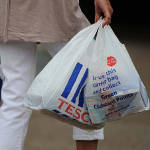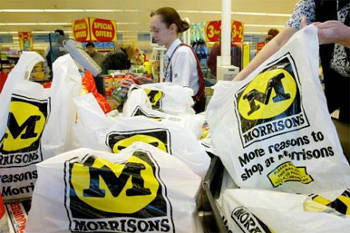
 It's all about slowing down the use of disposable plastic bags and trying to repair the damages done to the environment. Streets, countryside, seas or animals, it's the whole nature that suffers from our reckless shopping behaviour. Bangladesh was the very first country to forbid plastic bags. Many other countries around the world started to charge for plastic bags, or replaced them with paper bags. In the UK, the 5p charge was first introduced by Wales, in 2011, followed by Northern Ireland in 2013, then Scotland in 2014. England is the last one to introduce the 5p Government charge.
It's all about slowing down the use of disposable plastic bags and trying to repair the damages done to the environment. Streets, countryside, seas or animals, it's the whole nature that suffers from our reckless shopping behaviour. Bangladesh was the very first country to forbid plastic bags. Many other countries around the world started to charge for plastic bags, or replaced them with paper bags. In the UK, the 5p charge was first introduced by Wales, in 2011, followed by Northern Ireland in 2013, then Scotland in 2014. England is the last one to introduce the 5p Government charge.
This tax, which is not going to the government but to the supermarkets, has two main purposes. The first one is to reduce (by 80%, hopefully) the utilization of disposable plastic bags, encouraging shoppers to reuse them when possible or to bring their own carrier. The second aim is to collect money for environmental associations, save on litter clean-up and reduce carbon footprint. For example, Tesco plans to finance green spaces creation or improvement local projects across the UK, such as community gardens, pocket parks, sports facilities and woodland walks.
However, and much to the disappointment of campaigners, this tax only affects larger retailers: stores employing less than 250 people aren't concerned. Likewise, the tax won't be levied when buying aquatic creatures in water, unwrapped blades, unwrapped seeds, roots or soil products, unwrapped takeaway food, raw meat, poultry or fish and prescription medicine. Other exceptions include airport shops, trains, planes and ships on board purchases, and of course paper bags.
Photo: standard.co.uk
News in the same category
Many recipes cannot be made without a minimum of kitchen equipment. So the Canadian association, The Kitchen Library, proposes the rental of these instruments, for a duration of 7 days. In parallel, it also organises cookery lessons.
Adopted in 2011, the INCO regulation on the labelling of foodstuffs enters into force tomorrow. Allergens and nanomaterials are amongst the information that becomes compulsory on products, even for restaurants and on internet.
In addition to being located in the heart of the Huis Ten Bosch theme park in Japan, the future Henna-na hotel will have the specificity of employing humanoid robots, whilst room access keys and cards give way to facial recognition.
Last July, the artist, Nickolay Lamm, demonstrated that Barbie wouldn't stand up if she was real. He then imagined a doll with realistic measurements, now financed by the Crowdtilt Open site under the name, Lammily.




